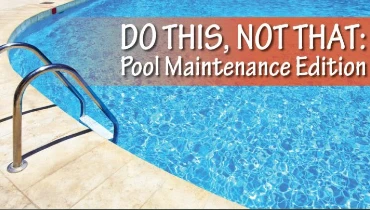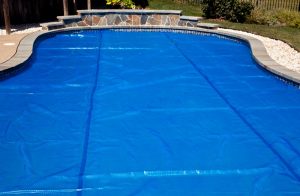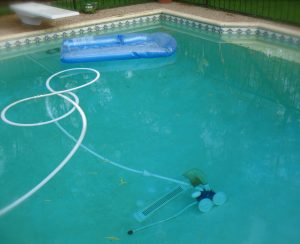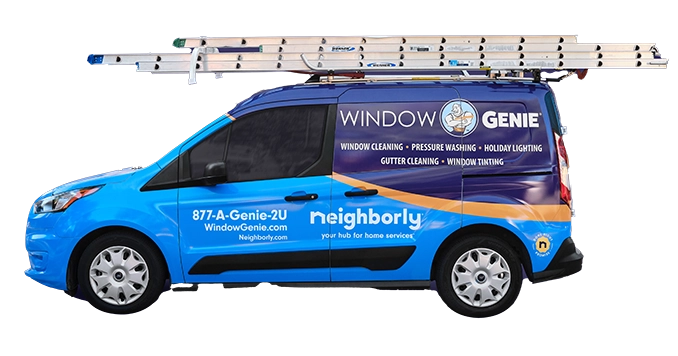
Most people think having a pool in their backyard will always be fun in the sun. It’s easy to daydream of throwing birthday parties, getting an intense workout in, that includes laps after work, and spending long weekends lounging poolside catching rays and cultivating the perfect tan. Unfortunately, it’s not all floaties and noodles. Without proper daily or weekly maintenance, your pool could fall into the hands of a plethora of undesirable conditions. Green water, broken filters, and algae build up, just to name a few. And, no one wants to lay by a cloudy green pool. Every choice you make when it concerns your pool has a consequence.
Salt vs. Chlorine

Chances are if you have a pool it’s a chlorine pool. Despite the popularity of chlorine, it may not be the best choice for you and your family. Just to be clear, salt water pools do have chlorine in them, but the chlorine level is typically lower in a salt water pool than in a traditional chlorinated one. The chlorine found in a salt water pool isn’t added externally by you but is created from chemical electrolysis by the salt water system. Anyone who knows about salt water generators immediately decries the cost. It is true. Salt water systems are more expensive at the onset. Saltwater pools have many advantages, including less maintenance. But perhaps the biggest advantage is the long term cost. Chlorine pools are cheaper upfront but need to be continually maintained. The biggest advantage of chlorine is the initial cost and the speed with which it will clear your pool. Salt water systems can take up to five times longer to clear up your pool.
Verdict: Salt
Even though the initial cost seems prohibitive, you’ll save a lot of money over the life of your pool. You will also avoid the headache of testing and adjusting the levels of a chlorine pool.
Solar Cover vs. Pool Heater

The most efficient way to heat a pool is probably to use both of these methods. But for the purpose of this exercise, we are going to weigh the two as a choice. It should also be noted that there are a couple of different types of pool heaters. We are only talking in general terms. 75% of a swimming pool’s heat loss is due to evaporation. A solar cover minimizes the transfer of heat from evaporation by acting as an insulator between swimming pool water and the air. Pool covers don’t actually heat your pool, they trap the heat and prevent it from leaving. Pool heaters and pumps will actually regulate the temperature of your pool. There is no question a pool heater will do a much better job keeping your pool warm. The real question is whether or not there is enough need for the expense. Pool heaters are costly upfront and need fuel and maintenance.
Verdict: It’s up to you
If you can afford a pool heater there is no reason not to use one. But a solar cover can be an efficient way to keep your pool comfortable.
Baking Soda vs. Soda Ash
The pH of your pool is extremely important. Understanding water balance can also be one of the most confusing processes of pool maintenance. Because of its complexity, some pool owners may not know everything they need to do to keep their pool water safe, comfortable and corrosion free. pH refers to the acidity or baseness of your pool water. A proper pH level is around 7.4 to 7.6. If the pH level is too high chlorine will not be active. Total alkalinity is closely related to pH, measuring the pool’s ability to neutralize acids. The proper alkalinity range of 80 ppm to 150 ppm, keeps the pH level stable. Baking soda and soda ash will raise pool pH levels; both increase alkalinity and neither will cause byproducts to form. But soda ash usually will raise both pH and alkalinity. Baking soda will raise alkalinity but will usually have only a small effect on pH. Exact results will depend on the starting point of your pool water.
Verdict: Soda Ash
Honestly, either will work effectively. But soda ash serves two purposes. It will keep your pool’s pH balanced and keep the alkalinity in line.
Automatic Vacuum vs. Manual Vacuum

There are two ways to clean a pool: either the owner can do it themselves with a manual cleaner, or they can get an automatic cleaner and let it do the work. Similar to heating a pool the main difference is the price. The biggest advantage on a manual cleaner is the price. Manual cleaners are very affordable, but there’s one huge downside: they’re time-consuming. A manual cleaner translates to you doing the work. Automatic cleaners can be powered by a battery, solar, or suction. The least effective of these is suction, so we are going to remove it from the equation. Solar-powered pool cleaners require the least amount of effort of all the automatic cleaners. They are entirely self-powered, drawing energy from the sun, and many include batteries so they can continue working into the night. The biggest drawback to these particular automatic cleaners is that they have to run on the surface because they rely on solar panels. Robotic pool cleaners rely on either a battery or waterproof power line and can run even when the pool’s own circulation system is turned off. They can be almost as flexible as a manual cleaner but are by far the most expensive. The advantage is that they can clean the entire pool surface, and liner, with minimal user input, which means that they often do a better job than many other automatic cleaners. They can get into corners and hard to reach areas and can be installed in almost any pool.
Verdict: Automatic
Whether you choose a solar powered or robotic cleaner, automatic pool cleaners are far better than manual vacuums. The time that is saved, paired with the quality make automatic the clear choice.
